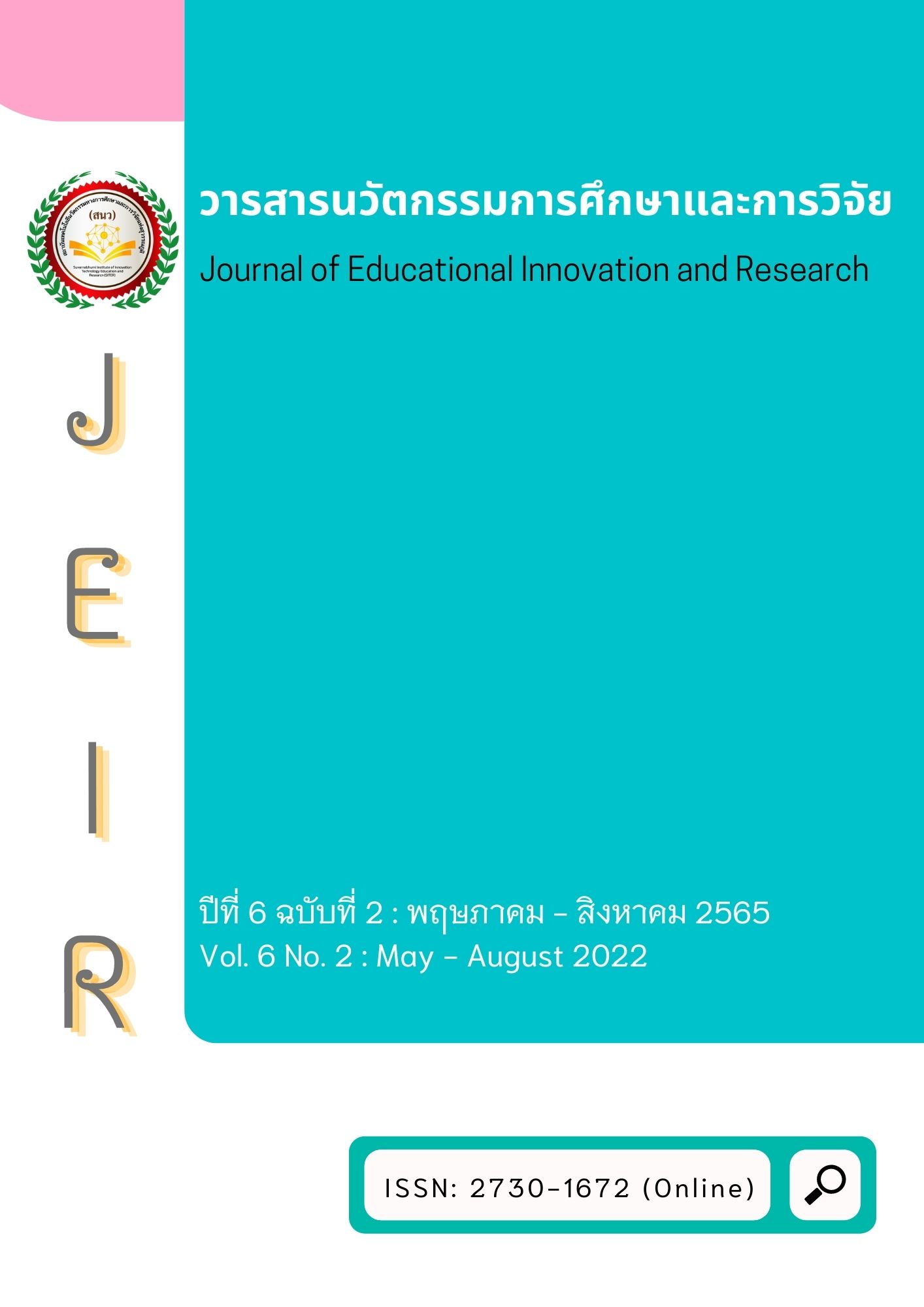การบริการสาธารณะและการมีส่วนร่วมเพื่อการพัฒนาอย่างยั่งยืนของผู้ประกอบการ
Main Article Content
บทคัดย่อ
บทความนี้เป็นการเสนอแนวคิดการบริการสาธารณะ และการมีส่วนร่วมเพื่อการพัฒนาอย่างยั่งยืนของผู้ประกอบการ เพื่อให้เห็นถึงความเชื่อมโยงระหว่างการจัดทำบริการสาธารณะ การมีส่วนร่วมของประชาชนในองค์รวมที่มีความสัมพันธ์กับพันธะกิจของมหาวิทยาลัยในการพัฒนาผู้ประกอบการให้เกิดความยั่งยืน ผลการศึกษาพบว่าการศึกษาการบริการสาธารณะเพื่อการพัฒนาที่ยั่งยืนของผู้ประกอบการ คือ กิจกรรมที่จัดขึ้นนั้นจะต้องมีความสอดคล้องกับความต้องการของผู้ประกอบการ การจัดกิจกรรมการให้บริการสาธารณะจะต้องมีขึ้นอย่างสม่ำเสมอ โดยคำนึงถึงผู้มาใช้บริการทุกคนอย่างเสมอภาคและเท่าเทียมกัน ไม่มีการใช้สิทธิพิเศษแก่บุคคลหรือกลุ่มใดในลักษณะแตกต่างจากคนอื่น ๆ สามารถลดต้นทุนการจัดกิจกรรมหรือประหยัดค่าใช้จ่ายที่ต้องใช้ไป ในการบริการสาธารณะได้ และกิจกรรมดังกล่าวจะต้องมีความสะดวกต่อผู้รับบริการ ไม่เป็นการสร้างภาวะยุ่งยากให้แก่ผู้ใช้บริการมากจนเกินไป จึงจะส่งผลให้เกิดการพัฒนาที่ยั่งยืนต่อผู้ประกอบการใน 3 ด้าน ได้แก่ 1. ด้านสังคม 2. ด้านเศรษฐกิจ และ 3. ด้านสิ่งแวดล้อม สามารถทำให้เศรษฐกิจเจริญเติบโตอย่างมีคุณภาพพัฒนาคนให้มีความรู้ มีสมรรถนะและมีคุณภาพชีวิตดีขึ้น เป็นสังคมแห่งการเรียนรู้ และใช้ทรัพยากรธรรมชาติในปริมาณที่ระบบนิเวศสามารถ ฟื้นตัวกลับสู่สภาพเดิมได้
Article Details

อนุญาตภายใต้เงื่อนไข Creative Commons Attribution-NonCommercial-NoDerivatives 4.0 International License.
เอกสารอ้างอิง
กุลธน ธนาพงศธร. (2537). แนวคิดทั่วไปเกี่ยวกับนโยบายสาธารณะ นโยบายสาธารณะและการวางแผน (พิมพครั้งที่ 9). นนทบุรี: สุโขทัยธรรมาธิราช.
เกื้อ วงศ์บุญสิน. (2538).ประชากรกับการพัฒนา (พิมพ์ครั้งที่ 2). กรุงเทพฯ: จุฬาลงกรณ์มหาวิทยาลัย.
จินตวีร์ เกษมศุข. (2557). หลักการมีส่วนร่วมกับการพัฒนาชุมชนอย่างยั่งยืน. กรุงเทพฯ: แอคทีฟ พริ้นท์.
พระราชบัญญัติ ว่าด้วยมหาวิทยาลัยเทคโนโลยีราชมงคล พ.ศ. 2548. (18 มกราคม 2548). ราชกิจจานุเบกษา. เล่มที่ 122 ตอนที่ 6 ก, หน้า 17-45.
สำนักงานคณะกรรมการพัฒนาการเศรษฐกิจและสังคมแห่งชาติ. (2559). แผนพัฒนาเศรษฐกิจและสังคมแห่งชาติ ฉบับที่ 12 (พ.ศ. 2560 - 2564). กรุงเทพฯ: สำนักงานคณะกรรมการพัฒนาการเศรษฐกิจและสังคมแห่งชาติ.
ถวิลวดี บุรีกุล. (2551). การมีส่วนร่วม: แนวคิด ทฤษฎีและกระบวนการ. เอกสารประกอบการศึกษาดูงานของคณะกรรมาธิการการพัฒนาการเมืองและการมีส่วนร่วมของประชาชนวุฒิสภา. กรุงเทพฯ: สถาบันพระปกเกล้า.
นันทวัฒน์ บรมานันท์. (2552). หลักกฎหมายปกครองเกี่ยวกับบริการสาธารณะ. กรุงเทพฯ: วิญญูชน
วสุธร ตันวัฒนกุล. (2549). การพัฒนาแบบยั่งยืน (Sustainable Development). สืบค้นเมื่อ 13 สิงหาคม 2564, จาก www.ph.buu.ac.th/pdf/vasutorn/develop_old.pdf
สิริภากิจ ประพฤทธิ์กุล. (2556). ส่วนประสมทางการตลาดบริการ ทัศนคติและแรงจูงใจในการท่องเที่ยวที่ มีอิทธิพลต่อการตัดสินใจเดินทางไปท่องเที่ยวที่ประเทศเกาหลีของนักท่องเที่ยวชาวไทย ในกรุงเทพมหานคร. (การค้นคว้าอิสระบริหารธุรกิจมหาบัณฑิต). มหาวิทยาลัยกรุงเทพ.
สุเชาวน์ มีหนองหว้า และคณะ. (2563). การบริการสาธารณะด้านการจัดการศึกษาขององค์กรปกครองส่วนท้องถิ่นภายใต้บริบทการกระจายอำนาจในรอบสองทศวรรษ. วารสารการเมืองการปกครอง, 10(3), 288-302.
อำนวย บุญรัตนไมตรี และคณะ.(2564). แนวคิดว่าด้วยการมีส่วนร่วมแบบร่วมกันรับผิดชอบในการจัดการภาครัฐและท้องถิ่นของประชาชน. วารสารวิชาการมหาวิทยาลัยอีสเทิร์นเอเชีย,11(3), 33-41.
Barbier, E.B. and Burgess, J.C.. (2021). Economics of the SDGs: Putting the Sustainable Development Goals into Practice. New York: Palgrave Macmillan.


